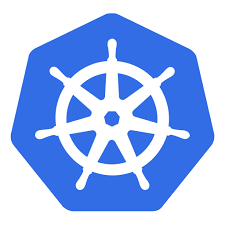Getting started with Ansible role, tasks for docker
Hai semuanya, setelah sebelumnya kita menyiapkan environment seperti Ansible Controller node dan Managed node dengan Virtual Machine sekarang kita akan membahas beberapa IT Automation dengan meggunakan Ansible khususnya terkait dengan Docker operation yaitu
- Install Docker engine with ansible role dimmaryanto93.docker
- Manage docker image using ansible docker_image module
- Running a container using ansible docker_container module
- Execute a container using ansible docker_container_exec module
- Manage multi-container Docker applications with Docker Compose using ansible docker_compose module
Ok tanpa berlama-lama yuk lansung aja kita bahas materi yang pertama
Install Docker engine with ansible role
Setelah kita Setup Ansible Control dan Managed Nodes, sekarang kita akan meng-install docker engine pada Managed Node menggunakan ansible role yang telah saya buat dan publish di Ansible Galaxy repository berikut dimmaryanto93.docker
Ok yang perlu di siapkan adalah Ansible playbook script seperti berikut:
-
Create file
requirement.yamlpada Control Node, seperti berikutcollections: - ansible.posix - community.docker roles: - dimmaryanto93.docker - dimmaryanto93.docker_compose -
Install dependency / ansible collections pada Control Node, seperti berikut
ansible-galaxy collection install -r requirement.yaml -
Install package / ansible role pada Control Node, seperti berikut
ansible-galaxy role install -r requirement.yaml -
Create file ansible playbook script dengan nama
site-docker.yamlseperti berikut -
Kemudian jalankan ansible playbook script tersebut dengan perintah seperti berikut:
ansible-playbook -i <path-to-inventory>/inventory <path-to-playbook-script>/site-docker.yaml
Jika dijalankan hasilnya seperti berikut:
devops/docker [master●] » ansible-galaxy collection install -r 11-ansible-docker/requirement.yaml
Starting galaxy collection install process
Nothing to do. All requested collections are already installed. If you want to reinstall them, consider using `--force`.
devops/docker [master●] » ansible-galaxy role install -r 11-ansible-docker/requirement.yaml
Starting galaxy role install process
[WARNING]: - dimmaryanto93.docker (master) is already installed - use --force
to change version to unspecified
[WARNING]: - dimmaryanto93.docker_compose (master) is already installed - use
--force to change version to unspecified
devops/docker [master●] » ansible-playbook -i 11-ansible-docker/inventory 11-ansible-docker/site-docker.yaml --list-tasks --list-hosts
playbook: 11-ansible-docker/site-docker.yaml
play #1 (dockerd): dockerd TAGS: []
pattern: ['dockerd']
hosts (1):
192.168.88.201
tasks:
dimmaryanto93.docker : Install Dependencies for Ubuntu TAGS: []
dimmaryanto93.docker : Import python docker module TAGS: []
dimmaryanto93.docker : Add apt repository docker-ce for Ubuntu TAGS: []
dimmaryanto93.docker : Install dockerd TAGS: []
dimmaryanto93.docker : Start docker daemon TAGS: []
dimmaryanto93.docker : Post-Install docker, executeable non-root TAGS: []
dimmaryanto93.docker : Post-Install docker, config daemon.json TAGS: []
dimmaryanto93.docker_compose : Download docker-compose for linux TAGS: []
dimmaryanto93.docker_compose : Executeable on root user for docker-compose binary TAGS: []
devops/docker [master●] » ansible-playbook -i 11-ansible-docker/inventory 11-ansible-docker/site-docker.yaml
PLAY [dockerd] *****************************************************************
TASK [Gathering Facts] *********************************************************
ok: [192.168.88.201]
TASK [dimmaryanto93.docker : Install Dependencies for Ubuntu] ******************
ok: [192.168.88.201] => (item=apt-transport-https)
ok: [192.168.88.201] => (item=ca-certificates)
ok: [192.168.88.201] => (item=software-properties-common)
ok: [192.168.88.201] => (item=python3-pip)
ok: [192.168.88.201] => (item=virtualenv)
ok: [192.168.88.201] => (item=python3-setuptools)
ok: [192.168.88.201] => (item=gnupg)
ok: [192.168.88.201] => (item=lsb-release)
TASK [dimmaryanto93.docker : Import python docker module] **********************
ok: [192.168.88.201]
TASK [dimmaryanto93.docker : Add apt repository docker-ce for Ubuntu] **********
included: /Users/dimasm93/.ansible/roles/dimmaryanto93.docker/tasks/package/debian/docker-ubuntu.yaml for 192.168.88.201
TASK [dimmaryanto93.docker : Add Docker GPG apt Key] ***************************
ok: [192.168.88.201]
TASK [dimmaryanto93.docker : Add Docker Repository for Ubuntu] *****************
ok: [192.168.88.201]
TASK [dimmaryanto93.docker : Install dockerd] **********************************
ok: [192.168.88.201] => (item=docker-ce)
ok: [192.168.88.201] => (item=docker-ce-cli)
ok: [192.168.88.201] => (item=containerd.io)
TASK [dimmaryanto93.docker : Start docker daemon] ******************************
ok: [192.168.88.201]
TASK [dimmaryanto93.docker : Post-Install docker, executeable non-root] ********
ok: [192.168.88.201]
TASK [dimmaryanto93.docker : Post-Install docker, config daemon.json] **********
included: /Users/dimasm93/.ansible/roles/dimmaryanto93.docker/tasks/config/docker-daemon-conf.yaml for 192.168.88.201
TASK [dimmaryanto93.docker : Create Directory /etc/docker] *********************
ok: [192.168.88.201]
TASK [dimmaryanto93.docker : Set docker daemon] ********************************
ok: [192.168.88.201]
TASK [dimmaryanto93.docker : Restart docker] ***********************************
changed: [192.168.88.201]
TASK [dimmaryanto93.docker : Log into private registry and force re-authorization] ***
TASK [dimmaryanto93.docker_compose : Download docker-compose for linux] ********
ok: [192.168.88.201]
TASK [dimmaryanto93.docker_compose : Executeable on root user for docker-compose binary] ***
ok: [192.168.88.201]
PLAY RECAP *********************************************************************
192.168.88.201 : ok=15 changed=1 unreachable=0 failed=0 skipped=5 rescued=0 ignored=0
Nah jika sudah selesai dengan output seperti diatas, maka docker sudah ter-install pada Managed Node. Sekarang temen-temen bisa check dengan login ke host lalu coba check dengan perintah berikut:
devops/docker [master●] » ssh root@192.168.88.201
Welcome to Ubuntu 22.04.1 LTS (GNU/Linux 5.15.0-43-generic x86_64)
8 updates can be applied immediately.
8 of these updates are standard security updates.
To see these additional updates run: apt list --upgradable
Last login: Sun Sep 11 09:06:38 2022 from 192.168.88.208
root@ansible-docker:~# docker info
Client:
Context: default
Debug Mode: false
Plugins:
app: Docker App (Docker Inc., v0.9.1-beta3)
buildx: Docker Buildx (Docker Inc., v0.9.1-docker)
scan: Docker Scan (Docker Inc., v0.17.0)
Server:
Containers: 0
Running: 0
Paused: 0
Stopped: 0
Images: 0
Server Version: 20.10.18
Storage Driver: overlay2
Backing Filesystem: extfs
Supports d_type: true
Native Overlay Diff: true
userxattr: false
Logging Driver: json-file
Cgroup Driver: systemd
Cgroup Version: 2
Plugins:
Volume: local
Network: bridge host ipvlan macvlan null overlay
Log: awslogs fluentd gcplogs gelf journald json-file local logentries splunk syslog
Swarm: inactive
Runtimes: io.containerd.runc.v2 io.containerd.runtime.v1.linux runc
Default Runtime: runc
Init Binary: docker-init
containerd version: 9cd3357b7fd7218e4aec3eae239db1f68a5a6ec6
runc version: v1.1.4-0-g5fd4c4d
init version: de40ad0
Security Options:
apparmor
seccomp
Profile: default
cgroupns
Kernel Version: 5.15.0-43-generic
Operating System: Ubuntu 22.04.1 LTS
OSType: linux
Architecture: x86_64
CPUs: 2
Total Memory: 3.834GiB
Name: ansible-docker
ID: BLEB:CR2H:MNLX:A2SK:ZU2U:6P5V:NWUM:HEEM:MPVH:N64L:ZZHM:MKHD
Docker Root Dir: /var/lib/docker
Debug Mode: false
Registry: https://index.docker.io/v1/
Labels:
Experimental: false
Insecure Registries:
127.0.0.0/8
Live Restore Enabled: false
Nah jadi seperti itu ya untuk Install Docker Engine pada Linux menggunakan Ansible. Jadi nanti jika temen-temen ada server lagi yang ingin kita install Docker kita hanya perlu tambahkan host/ip address servernya pada inventory dan execute kembali script ansible-playbook
Manage docker image using ansible docker_image module
Setelah kita meng-install Docker engine pada Managed Host dengan menggunakan Ansible role, kita juga bisa menggunakan docker module yang di sediakan oleh community ansible khususnya pada docker_image module yang biasanya digunakan untuk:
Manage docker images seperti
- Build docker image
- Load or Pull an image
- Tagging an image
- Pushing an image to a registry
- Archiving an image to a
.tarfile
Sebagai contoh misalnya saya mau pull docker image nginx:mainline di Managed node, kita bisa menggunakan docker_image module ini dengan script berikut:
Kemudian coba jalankan perintah ansible-playbook berikut:
ansible-playbook -i <path-to-inventory>/inventory <path-to-playbook>/site-docker-image-module.yamlJika dijalankan hasilnya seperti berikut:
~ » ssh root@192.168.88.203
Welcome to Ubuntu 22.04.1 LTS (GNU/Linux 5.15.0-43-generic x86_64)
Last login: Sun Sep 11 11:42:26 2022 from 192.168.88.207
root@ansible-docker:~# docker images
REPOSITORY TAG IMAGE ID CREATED SIZE
root@ansible-docker:~# logout
Connection to 192.168.88.203 closed.
~ » cd Developer/dimas-maryanto.com/youtube/_projects/devops/docker
devops/docker [master●] » ansible-playbook -i 11-ansible-docker/inventory 11-ansible-docker/site-docker-image-module.yaml --list-tasks
playbook: 11-ansible-docker/site-docker-image-module.yaml
play #1 (dockerd): dockerd TAGS: []
tasks:
Pull nginx image TAGS: []
devops/docker [master●] » ansible-playbook -i 11-ansible-docker/inventory 11-ansible-docker/site-docker-image-module.yaml
PLAY [dockerd] *****************************************************************
TASK [Pull nginx image] ********************************************************
changed: [192.168.88.203]
PLAY RECAP *********************************************************************
192.168.88.203 : ok=2 changed=1 unreachable=0 failed=0 skipped=0 rescued=0 ignored=0
Jika sudah sekarang kita bisa check ke host tersebut apakah sudah ada docker image nginx:mainline seperti berikut:
devops/docker [master●] » ssh root@192.168.88.203
Welcome to Ubuntu 22.04.1 LTS (GNU/Linux 5.15.0-43-generic x86_64)
Last login: Sun Sep 11 11:48:05 2022 from 192.168.88.207
root@ansible-docker:~# docker images
REPOSITORY TAG IMAGE ID CREATED SIZE
nginx mainline 2b7d6430f78d 2 weeks ago 142MB
Selain itu juga klo kita mau hapus, bisa update property state=present menjadi state: absent kemudian coba execute kembali ansible-playbook maka image nginx:mainline akan di hapus dari list docker image.
Manage a container using ansible docker_container module
Selain kita bisa me-manage image dengan ansible module docker_image kita juga bisa me-manage containers dengan menggunakan ansible module docker_container seperti berikut:
- Create a container
- Running a container
- Remove a container
- Start/Restart a container
- Stop a running container
Contohnya jika saya mau me-running container nginx:mainline dengan meng-expose port 80 serta restart container jika failed maka scriptnya seperti berikut:
Kemudian coba jalankan perintah ansible-playbook berikut:
ansible-playbook -i <path-to-inventory>/inventory <path-to-playbook>/site-docker-container-module.yamlJika dijalankan hasilnya seperti berikut:
devops/docker [master] » curl 192.168.88.203
curl: (7) Failed to connect to 192.168.88.203 port 80 after 32 ms: Connection refused
devops/docker [master] » ansible-playbook -i 11-ansible-docker/inventory 11-ansible-docker/site-docker-container-module.yaml --list-tasks
playbook: 11-ansible-docker/site-docker-container-module.yaml
play #1 (dockerd): dockerd TAGS: []
tasks:
Run nginx image TAGS: []
devops/docker [master] » ansible-playbook -i 11-ansible-docker/inventory 11-ansible-docker/site-docker-container-module.yaml
PLAY [dockerd] *****************************************************************
TASK [Run nginx image] *********************************************************
changed: [192.168.88.203]
PLAY RECAP *********************************************************************
192.168.88.203 : ok=2 changed=1 unreachable=0 failed=0 skipped=0 rescued=0 ignored=0
devops/docker [master] » curl 192.168.88.203 -v
* Trying 192.168.88.203:80...
* Connected to 192.168.88.203 (192.168.88.203) port 80 (#0)
> GET / HTTP/1.1
> Host: 192.168.88.203
> User-Agent: curl/7.79.1
> Accept: */*
>
* Mark bundle as not supporting multiuse
< HTTP/1.1 200 OK
< Server: nginx/1.23.1
< Date: Sun, 11 Sep 2022 12:08:12 GMT
< Content-Type: text/html
< Content-Length: 615
< Last-Modified: Tue, 19 Jul 2022 14:05:27 GMT
< Connection: keep-alive
< ETag: "62d6ba27-267"
< Accept-Ranges: bytes
<
<!DOCTYPE html>
<html>
<head>
<title>Welcome to nginx!</title>
<style>
html { color-scheme: light dark; }
body { width: 35em; margin: 0 auto;
font-family: Tahoma, Verdana, Arial, sans-serif; }
</style>
</head>
<body>
<h1>Welcome to nginx!</h1>
<p>If you see this page, the nginx web server is successfully installed and
working. Further configuration is required.</p>
<p>For online documentation and support please refer to
<a href="http://nginx.org/">nginx.org</a>.<br/>
Commercial support is available at
<a href="http://nginx.com/">nginx.com</a>.</p>
<p><em>Thank you for using nginx.</em></p>
</body>
</html>
* Connection #0 to host 192.168.88.203 left intact
Execute a container using ansible docker_container_exec module
Selanjutnya selain me-manage container kita juga menggunakan execute command dalam container menggunakan ansible module docker_container_exec seperti berikut:
Masih dalam file sebelumnya yaitu site-docker-container-module.yaml coba tambahkan tasks berikut:
Kemudian coba jalankan perintah ansible-playbook berikut:
ansible-playbook -i <path-to-inventory>/inventory <path-to-playbook>/site-docker-container-module.yamlJika dijalankan hasilnya seperti berikut:
devops/docker [master●] » ansible-playbook -i 11-ansible-docker/inventory 11-ansible-docker/site-docker-container-module.yaml --list-tasks
playbook: 11-ansible-docker/site-docker-container-module.yaml
play #1 (dockerd): dockerd TAGS: []
tasks:
Run nginx image TAGS: []
Getting index.html TAGS: []
print TAGS: []
devops/docker [master●] » ansible-playbook -i 11-ansible-docker/inventory 11-ansible-docker/site-docker-container-module.yaml
PLAY [dockerd] *****************************************************************
TASK [Run nginx image] *********************************************************
ok: [192.168.88.203]
TASK [Getting index.html] ******************************************************
changed: [192.168.88.203]
TASK [print] *******************************************************************
ok: [192.168.88.203] => {
"index_html.stdout": "<!DOCTYPE html>\n<html>\n<head>\n<title>Welcome to nginx!</title>\n<style>\nhtml { color-scheme: light dark; }
\nbody { width: 35em; margin: 0 auto;\nfont-family: Tahoma, Verdana, Arial, sans-serif; }
\n</style>\n</head>
\n<body>\n<h1>Welcome to nginx!</h1>
\n<p>If you see this page, the nginx web server is successfully installed and
\nworking. Further configuration is required.</p>
\n\n<p>For online documentation and support please refer to\n<a href=\"http://nginx.org/\">nginx.org</a>.<br/>
\nCommercial support is available at
\n<a href=\"http://nginx.com/\">nginx.com</a>.</p>
\n\n<p><em>Thank you for using nginx.</em></p>\n</body>
\n</html>"
}
PLAY RECAP *********************************************************************
192.168.88.203 : ok=4 changed=1 unreachable=0 failed=0 skipped=0 rescued=0 ignored=0
Manage multi-container using ansible docker_compose module
Selain me-manage container, menjalankan command dalam container, kita juga me-manage multi-container docker application dengan Docker compose di ansible module dengan docker_compose module diantaranya:
- Uses Docker Compose to start, shutdown and scale services. This module requires
docker-compose < 2.0.0. - Configuration can be read from a
docker-compose.ymlordocker-compose.yamlfile or inline using the definition option. - Supports check mode.
Sebagai contoh, saya mau menjalankan container db dengan image postgres dan web server dengan image http menggunakan docker-compose.yaml file maka jika terjemahkan ke ansible-playbook script seperti berikut:
Kemudian coba jalankan perintah ansible-playbook berikut:
ansible-playbook -i <path-to-inventory>/inventory <path-to-playbook>/site-docker-compose-module.yamlJika dijalankan hasilnya seperti berikut:
devops/docker [master●] » ansible-playbook -i 11-ansible-docker/inventory 11-ansible-docker/site-docker-compose-module.yaml --list-tasks
playbook: 11-ansible-docker/site-docker-compose-module.yaml
play #1 (dockerd): dockerd TAGS: []
tasks:
Run docker-compose.yaml TAGS: []
Debug TAGS: []
devops/docker [master●] » ansible-playbook -i 11-ansible-docker/inventory 11-ansible-docker/site-docker-compose-module.yaml
PLAY [dockerd] *****************************************************************
TASK [Run docker-compose.yaml] *************************************************
changed: [192.168.88.203]
TASK [Debug] *******************************************************************
ok: [192.168.88.203] => {
"docker_compose_run": {
"changed": true,
"failed": false,
"services": {
"db": {
"bootcamp_db_1": {
"cmd": [
"postgres"
],
"image": "postgres:14.2",
"labels": {
"com.docker.compose.config-hash": "c472a78f7830908d61026f5972fe750722f48fb6ea0cb545c560ce5bb93b5ec2",
"com.docker.compose.container-number": "1",
"com.docker.compose.oneoff": "False",
"com.docker.compose.project": "bootcamp",
"com.docker.compose.project.config_files": "/tmp/ansiblepjrryury/docker-compose.yml",
"com.docker.compose.project.working_dir": "/tmp/ansiblepjrryury",
"com.docker.compose.service": "db",
"com.docker.compose.version": "1.29.2"
},
"networks": {
"bootcamp_default": {
"IPAddress": "172.18.0.3",
"IPPrefixLen": 16,
"aliases": [
"e54e1866f11d",
"db"
],
"globalIPv6": "",
"globalIPv6PrefixLen": 0,
"links": null,
"macAddress": "02:42:ac:12:00:03"
}
},
"state": {
"running": true,
"status": "running"
}
}
},
"webapp": {
"bootcamp_webapp_1": {
"cmd": [
"httpd-foreground"
],
"image": "httpd",
"labels": {
"com.docker.compose.config-hash": "770f5e93d0f67fc701b65f4c5bc1b3071a748a02b40bfaf887319488dcdfb418",
"com.docker.compose.container-number": "1",
"com.docker.compose.oneoff": "False",
"com.docker.compose.project": "bootcamp",
"com.docker.compose.project.config_files": "/tmp/ansiblepjrryury/docker-compose.yml",
"com.docker.compose.project.working_dir": "/tmp/ansiblepjrryury",
"com.docker.compose.service": "webapp",
"com.docker.compose.version": "1.29.2"
},
"networks": {
"bootcamp_default": {
"IPAddress": "172.18.0.2",
"IPPrefixLen": 16,
"aliases": [
"19b95e1f431b",
"webapp"
],
"globalIPv6": "",
"globalIPv6PrefixLen": 0,
"links": null,
"macAddress": "02:42:ac:12:00:02"
}
},
"state": {
"running": true,
"status": "running"
}
}
}
}
}
}
PLAY RECAP *********************************************************************
192.168.88.203 : ok=3 changed=1 unreachable=0 failed=0 skipped=0 rescued=0 ignored=0
Ok nah jadi dengan menggunakan ansible module docker ini, kita bisa secara repeated execute untuk me-manage container yang dijalankan.




